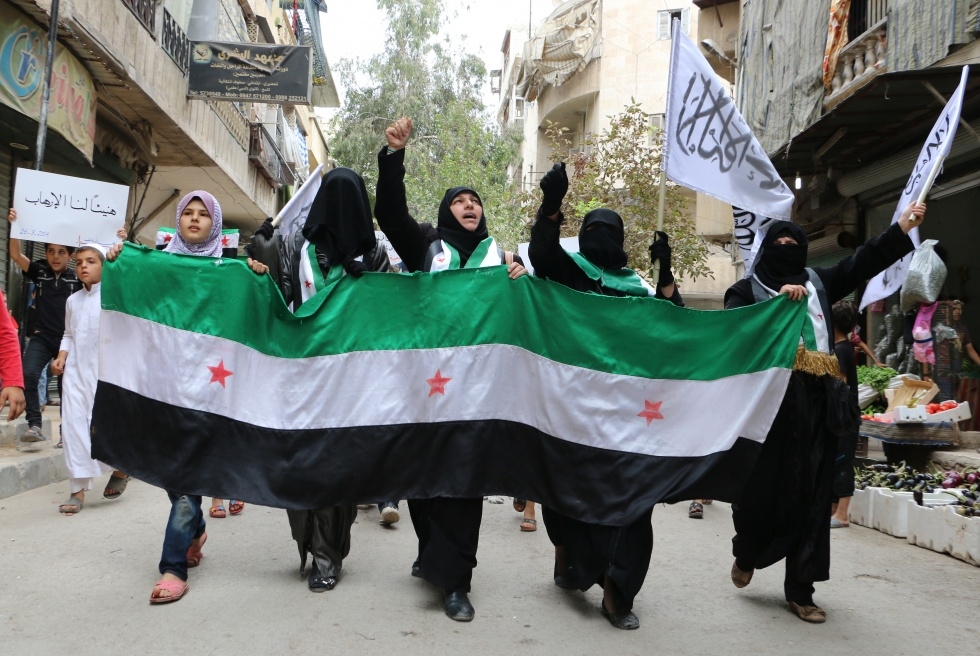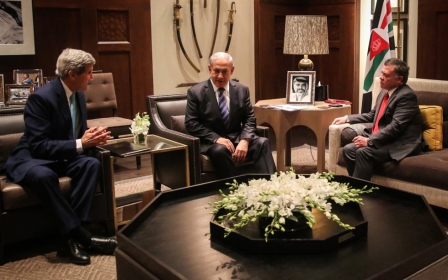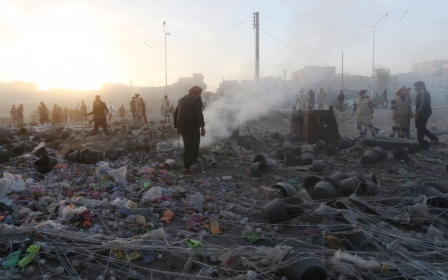One degree of separation with a dead militant

The name was vaguely familiar, something that I had come across somewhere. The news announcing the death of a Jordanian who had joined al-Nusra Front, the al-Qaeda offshoot in Syria, was also tiredly familiar and bordering on the repetitive. With Syria now acting as yet another black hole in the region, it was no surprise that yet another Jordanian had died there. But the name came back to me and I found myself scratching my head trying to remember who or what it reminded me of, where I had come across it.
Instinctively, I turned to Facebook and put the name through its search engine. I tried it in Latin characters first but that produced no results, then I tried it in Arabic and there reality swung at me: I had one mutual friend with a dead militant.
The article I had read about this young man visited his turbulent ideological swinging from the left to the brutal extremes of the right. He was actively involved in the pro-reform political movement in Jordan in the past few years, a fleeting moment of actual, broad political agitation inspired by events in other Arab countries, which has since suffered a premature but definite death.
Here was a young man who, by all accounts, was searching for conviction and a way to achieve a different reality; democracy even, perhaps. How did he end up carrying arms for al-Nusra Front? Acting as a messenger, informing families of Jordanian al-Nusra fighters that they have perished by posting their pictures on Facebook? How had he gone from holding protest placards and spraying graffiti on Amman’s walls to posing with al-Nusra mates with their semi-automatic weapons against desert backdrops? What went so wrong as to turn this young man from peaceful protester to a foot soldier in Syria's bloody civil war?
Stunned, I stared at my screen for a few minutes. It was certainly him. Comments on his public pictures confirmed this: friends were paying their respects to him, praying for mercy and forgiveness on his behalf. But then what struck me was how average, ordinary, unremarkable, this young man seemed. Friends reminisced about his habit of giving everyone he met free Sharawi chewing gum; a cheap, tough treat from the factory where he used to work.
To juxtapose this image with the reality of his experience was an exercise so mind-stretching I almost developed a headache. Here was a young man a mere one degree of separation from me, who I could have met within my extended social circle at some point. Yet here he was, a person who in the last few months of his life opposed such principles as human rights, gender equality, rule of law and, had al-Nusra Front been in Jordan, would have gone further than that to violently silence and suppress all. Headache.
But then, of course, these were not just abstract possibilities. As his history and his Facebook posts attest, this was actually your average Jordanian young man until just a few months ago when his search for conviction (and action, it has to be said) led him to the arms of al-Nusra.
It is difficult to process what shifts occurred in this man's mind to sway him from trying the rather bankrupt Jordanian "left," which still stubbornly stands with Assad in his systematic extermination of the Syrian people, to aligning himself with Jordan’s Islamists, to fighting for al-Qaeda in Syria. I imagined this young man being lent a worn copy of the Communist Manifesto, margins littered with notes and lines, and him having conversations with his leftist mates about class struggle and social justice.
Then I imagined him absorbing al-Nusra's doctrine in a Syrian town, now seeing that their vision for Syria and the so-called "ummah" is the only way to achieve social justice. Having tried the different flavours of the overwhelmingly tasteless Jordanian political spectrum, he chose to embrace action, even if it meant the very reversal of his previous political tastings.
But then we cannot strip this story of all context. The climate in Jordan in 2011, which saw the birth of a wide-spectrum pro-reform (and at times revolutionary) movement known as the Hirak ushered a moment of unprecedented political agitation. Weekly protests, frequent and frank citizen-led debates, highly vocal and widespread political dissidence cultivated a fertile environment for new, bold voices to emerge, and for political action to materialise.
It is in this moment that this young man’s desire for change flourished, yet it is in precisely this moment that this desire was quashed by the regime’s numerous crackdowns on protests, by the failure of Jordan’s political parties to galvanise this momentum into solid gains, and by the subsequent silencing of dissidence through new and amended laws designed to curb media freedoms and to intimidate, and persecute, critics. It is not difficult to see how this climate throttles hope and drives some into despair and others into radical action.
The article I read about Jihad (that was his name) said that, unlike the other Jordanians who expired in Syria's civil war, his death had a metaphorically unifying effect on the people he knew in his previous life as a pro-reform activist. Ideological enemies, it said, were united in their bereavement. No wonder, I thought, as I myself felt acute pangs of grief; not just at the loss of yet another human life, but at the loss of potential, of audacity, of pursuit of ideals, of active keenness for change - traits that Jihad seems to have lived by but that, ultimately, he surrendered to extremism at his expense, and ours.
- Ebtihal Mahadeen is a Jordanian feminist academic currently working at the Department of Islamic and Middle Eastern Studies at the University of Edinburgh, UK. With a professional media background, her work focuses on the intersection of gender, sexuality, and media within an Arab context. She is currently co-editing a volume on Arab Feminist Media Studies and has previously written for The Star newspaper, 7iber.com, and Global Voices Online.
The views expressed in this article belong to the author and do not necessarily reflect the editorial policy of Middle East Eye.
Photo: Female supporters of the al Nusra Front take part in a protest against Syrian President Bashar al-Assad and the international coalition in Aleppo on 26 September (AFP)
New MEE newsletter: Jerusalem Dispatch
Sign up to get the latest insights and analysis on Israel-Palestine, alongside Turkey Unpacked and other MEE newsletters
Middle East Eye delivers independent and unrivalled coverage and analysis of the Middle East, North Africa and beyond. To learn more about republishing this content and the associated fees, please fill out this form. More about MEE can be found here.





